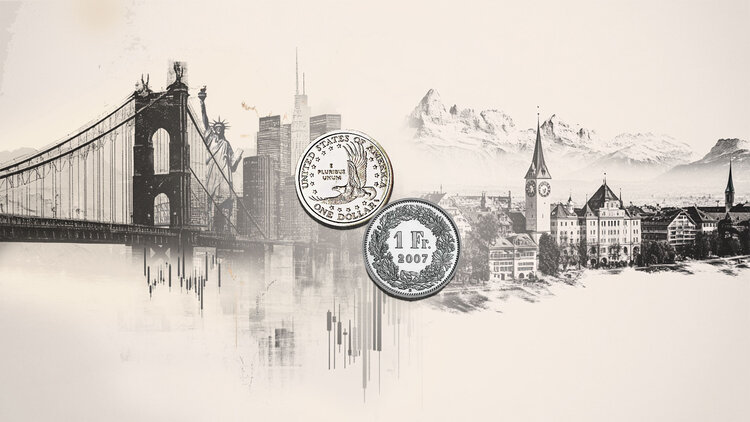Crypto M&A surges 30-fold as niche firms shift to mainstream


21shares spent years building its crypto franchise outside Wall Street’s orbit. From Zurich, it launched exchange-traded products that gave European investors access to Bitcoin and Ether long before the U.S. would allow them.
Now, in selling itself to FalconX—a crypto prime broker backed by Tiger Global and Singapore’s GIC—the company is trading autonomy for scale as crypto moves closer to the financial mainstream.
The deal underscores a broader shift: crypto specialists are entering traditional investment channels through regulated products. And the FalconX-21shares deal is part of a broader surge. Crypto M&A topped $10 billion for the first time in the third quarter, a more than 30-fold increase from a year earlier, according to Architect Partners.
For years, crypto was an M&A backwater as it slowly recovered from the 2022 market crash under the glare of hostile regulators. Ten months after Donald Trump returned to the White House and transformed the Securities and Exchange Commission from industry bogeyman to key ally, the tables have turned.
Trump’s policies, and the deals bonanza they’ve ignited, have changed the strategic calculus for companies like 21shares. Regulatory hurdles have eased, and the stalwarts of Wall Street are getting into crypto — putting the onus on incumbents to build a competitive moat around themselves.
“The regulatory environment finally allowed this to happen faster,” said Russell Barlow, 21shares’s chief executive officer, in an interview, declining to disclose the size of the deal. In terms of its roadmap, “what we thought we could do in five years we can now compress in two to three years.”
For most of the past decade, the firm carved out a niche in Europe while U.S. authorities blocked spot-crypto ETFs. Then, in early 2024, the SEC under then-President Joe Biden lifted that ban. Switzerland-based 21shares suddenly found itself competing in a far more crowded field.
Speed comes with a cost: the same regulatory clarity that enables deals also invites new competition. Low-cost Bitcoin and Ether ETFs overseen by giants like BlackRock Inc. and Fidelity started raking in multibillion-dollar investor flows and now command more than $173 billion in assets taken together. BlackRock’s IBIT Bitcoin and its Ether ETF oversee $87 billion and $15 billion respectively, compared with the $11 billion total for 21shares across more than 50 products.
As crypto merges into mainstream finance, firms like FalconX and 21shares are racing to stay competitive in an increasingly crowded field, according to Nate Geraci of NovaDius Wealth Management.
“We’re witnessing a land rush in crypto ETPs,” he said. “With new listing standards in place, the floodgates are set to open—making this an ideal time for a deal like this.”
FalconX, founded in 2018 and valued at $8 billion in a 2022 funding round, earlier this year bought Arbelos Markets, a trading firm focused on crypto derivatives. Its capabilities in trading and financing now extend to product creation.
21shares will retain its 100-strong staff and operate independently, with plans to launch 18 U.S. funds this year and expand into the Middle East and Asia. FalconX and 21shares aim to design strategies that weave digital assets into traditional markets, tokenized bonds and equities—for instance, by using blockchain to settle trades, per Barlow.
The FalconX-21shares tie-up is one in a string of billion-dollar bets redrawing crypto’s industrial map, beyond ETPs and prime brokerage. This year’s completed deals include several multibillion-dollar transactions. Coinbase Global Inc. acquired derivatives platform Deribit for $2.9 billion in May, while Ripple spent more than $2 billion buying prime broker Hidden Road and corporate-treasury firm GTreasury. Crypto targets have also drawn bidders from outside the sector, including CoreWeave Inc.’s $9 billion offer for Bitcoin miner and data-center operator Core Scientific Inc. in July.
“Consolidation in crypto is pushing firms to integrate vertically,” said Karl-Martin Ahrend, cofounder of digital-asset investment bank Areta. “Market makers, custodians, and infrastructure players are moving closer to the end investor as ETFs and regulation open new channels for institutional capital.”
Fending off the giants
Some crypto heavyweights have already moved to tap the rebound in sentiment, going public to build cash and acquisition firepower. Circle Internet Group Inc., issuer of the second-largest stablecoin, raised $1.1 billion in June, while exchange operator Gemini Space Station Inc. collected $425 million in September.
The question now is whether this burst of dealmaking will be enough to hold off global banks such as Goldman Sachs Group Inc. and Citigroup Inc.—and payment groups from Stripe Inc. to Revolut Ltd.—as they step in to exploit clearer regulation and rising demand for digital-asset offerings.
Traditional finance has scale and distribution on its side; crypto firms have speed and technical depth. The window for that advantage is narrow, and consolidation may be their best chance to use it.





